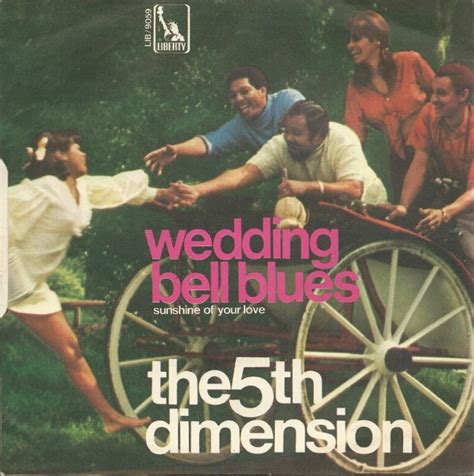
Wedding preparations can be stressful enough, but for some, the ultimate commitment ends before “I do.” A recent report reveals 29 shocking stories of weddings called off, showcasing a range of reasons from cold feet and infidelity to financial woes and family interference, leaving behind heartbroken partners, wasted expenses, and a trail of emotional wreckage.
The abrupt end to wedding plans, as detailed in a Yahoo Lifestyle report, often leaves individuals grappling with significant emotional and financial fallout. Participants shared their experiences anonymously, revealing a spectrum of reasons behind their decisions to call off their nuptials. These ranged from deeply personal realizations to external pressures, exposing the fragility of relationships under the intense scrutiny and expectations surrounding weddings.
One participant confessed to realizing, just days before the ceremony, that she didn’t truly love her fiancé. “I realized I didn’t love him,” she admitted, highlighting the potential for pre-wedding jitters to evolve into a fundamental questioning of the relationship’s foundation. This sentiment was echoed by others who described a gradual erosion of affection or a growing sense of incompatibility as the wedding date approached.
Infidelity emerged as another prominent catalyst for canceled weddings. Several individuals recounted discovering affairs, either physical or emotional, perpetrated by their partners, shattering trust and rendering the prospect of marriage untenable. One person described finding incriminating messages on their fiancé’s phone, leading to a confrontation and the subsequent termination of the engagement. “The trust was completely gone. There was no way I could marry someone who had betrayed me like that,” they stated.
Financial concerns also played a significant role in the dissolution of wedding plans. The immense cost associated with weddings can place considerable strain on couples, particularly if there are disagreements about budgeting or if unforeseen expenses arise. One participant explained that mounting debt and differing financial priorities led to constant arguments, ultimately culminating in the decision to call off the wedding. “We realized we were starting our marriage on shaky financial ground, and it just didn’t feel right,” they explained.
Family interference and disapproval were cited as additional factors contributing to canceled weddings. Disagreements with in-laws, conflicting expectations about the wedding itself, or outright hostility from family members can create insurmountable obstacles for couples. One individual recounted how constant criticism from their partner’s family eroded their self-esteem and created a toxic environment, leading them to question whether they could truly be happy within that family dynamic.
The consequences of a canceled wedding extend far beyond the emotional distress experienced by the couple. Significant financial losses are often incurred due to non-refundable deposits, vendor contracts, and purchased wedding attire. The Yahoo Lifestyle report highlights the financial burden that can accompany a broken engagement, leaving individuals with substantial debt and a lingering sense of resentment.
Moreover, the social implications of a canceled wedding can be profound. Couples may face awkward conversations with friends and family, navigate complex social dynamics, and endure judgment or speculation from their social circles. The experience can be isolating and emotionally draining, requiring individuals to rebuild their lives and redefine their identities in the aftermath of a failed commitment.
The stories shared in the Yahoo Lifestyle report offer a stark reminder that weddings, while often portrayed as fairy tales, are subject to the complexities and challenges of real life. The decision to call off a wedding is undoubtedly a difficult one, but it can also be a necessary step to protect oneself from entering into a potentially unhappy or unsustainable marriage.
The frequency of called-off weddings may also be indicative of evolving societal attitudes toward marriage. As divorce rates remain high, some couples may be more willing to reassess their relationships before making a lifelong commitment, recognizing that ending an engagement may be preferable to enduring a divorce later on. The stigma associated with canceling a wedding may also be diminishing, as individuals prioritize their own happiness and well-being over societal expectations.
The incidents highlight the critical importance of open communication, premarital counseling, and a realistic assessment of the relationship’s strengths and weaknesses before embarking on the journey toward marriage. Understanding each other’s values, expectations, and financial habits can help couples navigate potential challenges and build a stronger foundation for their future together. The stories serve as cautionary tales, emphasizing the need for careful consideration and honest self-reflection before taking the plunge into matrimony. The pressures of planning a wedding can exacerbate existing tensions and reveal underlying issues that may have been previously overlooked. The experience can be a crucible, testing the strength and resilience of the relationship and ultimately determining its ability to withstand the challenges of married life.
In several instances, the individuals interviewed expressed a sense of relief after calling off their weddings, despite the initial pain and disappointment. They recognized that they had made the right decision for themselves, even if it was a difficult one, and were grateful for the opportunity to avoid a potentially disastrous marriage. This perspective underscores the importance of prioritizing one’s own happiness and well-being, even when faced with societal pressures and expectations.
The prevalence of these stories suggests that pre-wedding jitters should not be dismissed lightly. While some anxiety is normal in the lead-up to a major life event, persistent doubts or a growing sense of unease should be carefully examined. Ignoring these feelings can lead to regret and unhappiness in the long run, making it essential to address any concerns openly and honestly with one’s partner.
Ultimately, the decision to call off a wedding is a deeply personal one, and there is no right or wrong answer. However, the stories shared in the Yahoo Lifestyle report offer valuable insights into the complexities of relationships and the importance of making informed decisions based on one’s own values and needs. By learning from the experiences of others, couples can approach marriage with greater awareness, clarity, and a stronger commitment to building a lasting and fulfilling partnership. The tales of canceled weddings are not just cautionary tales; they are also stories of resilience, self-discovery, and the courage to choose one’s own path, even when it deviates from the expected norm. The emotional rollercoaster of planning a wedding can often obscure underlying issues within a relationship, and the pressure to conform to societal expectations can make it difficult to recognize when a relationship is not truly right.
Moreover, the rise of social media has added a new layer of complexity to the wedding planning process. The pressure to create a picture-perfect wedding that can be showcased online can lead to unrealistic expectations and financial strain. Couples may feel compelled to spend more money than they can afford in order to impress their friends and followers, further exacerbating existing tensions and potentially contributing to the breakdown of the relationship.
The Yahoo Lifestyle report also highlights the importance of seeking professional help when facing relationship challenges. Premarital counseling can provide couples with a safe and supportive environment to discuss their concerns, improve their communication skills, and develop strategies for resolving conflict. A qualified therapist can help couples identify potential red flags and address underlying issues before they escalate into major problems.
Furthermore, the stories underscore the significance of having a strong support system of friends and family. Surrounding oneself with people who offer unbiased advice and emotional support can be invaluable during the stressful wedding planning process. These individuals can provide a reality check when needed and help couples maintain perspective when faced with challenges.
In conclusion, the 29 shocking stories of called-off weddings detailed in the Yahoo Lifestyle report offer a glimpse into the complexities of modern relationships and the pressures associated with marriage. While weddings are often celebrated as symbols of love and commitment, they are also subject to the realities of life, including financial strain, infidelity, and family interference. By learning from these experiences, couples can approach marriage with greater awareness, clarity, and a stronger commitment to building a lasting and fulfilling partnership. The decision to call off a wedding is never easy, but it can be a necessary step to protect oneself from entering into a potentially unhappy or unsustainable marriage. It underscores the need for open communication, realistic expectations, and a willingness to prioritize one’s own happiness and well-being. The incidents serve as a reminder that the ultimate goal is not just to have a beautiful wedding, but to build a strong and enduring relationship that can withstand the tests of time. The aftermath of a canceled wedding can be a period of profound grief and self-reflection, but it can also be an opportunity for personal growth and a renewed commitment to finding true happiness.
The report also subtly touches upon the societal narratives surrounding weddings. For generations, weddings have been presented as the ultimate symbol of success and fulfillment. This narrative can place undue pressure on couples to get married, even if they are not entirely sure it is the right decision. The stories of canceled weddings challenge this narrative, suggesting that it is okay to deviate from the expected path and prioritize one’s own happiness over societal expectations.
The rise of alternative wedding options, such as elopements and destination weddings, may also be a reflection of changing attitudes toward marriage. Some couples are choosing to forgo traditional weddings in favor of more intimate and personalized celebrations that better reflect their values and preferences. This trend suggests that the traditional wedding industry may need to adapt to meet the evolving needs of modern couples.
The long-term effects of a canceled wedding can vary depending on the individual and the circumstances surrounding the breakup. Some individuals may experience lingering feelings of sadness, regret, or anger. Others may find that the experience ultimately leads to personal growth and a deeper understanding of themselves and their needs. It is important to allow oneself time to heal and to seek professional help if needed.
The economic impact of canceled weddings can also be significant. The wedding industry is a multi-billion dollar industry, and canceled weddings can result in substantial financial losses for vendors, venues, and other businesses. This economic impact highlights the importance of having clear contracts and cancellation policies in place.
Ultimately, the stories of canceled weddings serve as a reminder that marriage is a serious commitment that should not be entered into lightly. It is essential to carefully consider all aspects of the relationship, including financial stability, communication skills, and shared values, before making the decision to get married. While weddings are often portrayed as fairy tales, they are also subject to the complexities and challenges of real life. By approaching marriage with awareness, clarity, and a commitment to building a strong and enduring partnership, couples can increase their chances of creating a happy and fulfilling life together. The narratives surrounding weddings need to evolve to reflect the realities of modern relationships and to empower individuals to make informed decisions that are right for them.
Frequently Asked Questions (FAQ)
-
What are the most common reasons for calling off a wedding, according to the article?
- The article indicates that common reasons include realizing a lack of love, infidelity, financial concerns, and family interference. One participant admitted, “I realized I didn’t love him,” and others cited discovering affairs or insurmountable financial disagreements as the breaking points.
-
What kind of financial losses can couples face when a wedding is called off?
- Significant financial losses can occur due to non-refundable deposits, vendor contracts, and purchased wedding attire. The article mentions the financial burden that can accompany a broken engagement, leaving individuals with substantial debt.
-
How do social implications affect couples who cancel their weddings?
- Couples may face awkward conversations, social judgment, and a sense of isolation. The article notes that the experience can be emotionally draining and require individuals to rebuild their lives and redefine their identities.
-
What does the article suggest about societal attitudes towards marriage and canceled weddings?
- The article suggests that evolving societal attitudes may contribute to more couples being willing to reassess their relationships before marriage. The stigma associated with canceling a wedding may be diminishing as people prioritize their well-being.
-
What advice does the article offer to couples planning a wedding?
- The article emphasizes the importance of open communication, premarital counseling, and a realistic assessment of the relationship’s strengths and weaknesses. It suggests addressing concerns openly and honestly and seeking professional help when needed.
-
How can family interference lead to a called-off wedding?
- Disagreements with in-laws, conflicting expectations, or outright hostility can create obstacles. One individual recounted constant criticism from their partner’s family eroding their self-esteem.
-
Does the article mention the emotional state of individuals after calling off a wedding?
- Yes, the article mentions that individuals often grapple with significant emotional distress, but some also experience relief. The decision to call off a wedding, though difficult, can be seen as a step to protect oneself from an unhappy marriage.
-
What role does financial stability play in wedding decisions according to the source?
- Financial concerns are a major factor. Mounting debt and differing financial priorities can lead to constant arguments, as one participant explained, “We realized we were starting our marriage on shaky financial ground, and it just didn’t feel right.”
-
How has social media impacted wedding planning, as suggested in the article?
- The article suggests that the pressure to create a “picture-perfect wedding” on social media can lead to unrealistic expectations and financial strain, further exacerbating existing tensions.
-
What does the article say about premarital counseling?
- Premarital counseling is highlighted as providing a safe environment to discuss concerns, improve communication, and develop conflict-resolution strategies, potentially identifying red flags before they escalate.
-
What are the signs that a couple should consider reassessing their wedding plans?
- Persistent doubts, growing unease, or a gradual erosion of affection should be carefully examined. Ignoring these feelings can lead to regret and unhappiness.
-
Does the report mention any long-term impacts of a canceled wedding?
- The long-term effects can vary from sadness and regret to personal growth and a deeper understanding of oneself. Allowing time to heal and seeking professional help are crucial.
-
How does the article discuss the economic impact on the wedding industry when ceremonies are called off?
- The article mentions that the wedding industry is multi-billion dollar industry and canceled weddings can result in substantial financial losses for vendors, venues, and other businesses.
-
What kind of support system is recommended for couples undergoing the stress of wedding planning?
- A strong support system of friends and family is recommended. They can offer unbiased advice, emotional support, and help couples maintain perspective.
-
Does the article provide any statistics regarding the frequency of called-off weddings?
- While the article does not provide specific statistics, it does note that divorce rates are high, suggesting that some couples may be more willing to reassess their relationships before making a lifelong commitment.
-
How does the article describe the role of family in the decision to call off a wedding?
- Family can play a significant role through interference or disapproval, creating insurmountable obstacles. Constant criticism can erode self-esteem and create a toxic environment.
-
What does the article suggest about the ideal outcome of a wedding decision, regardless of the choice?
- The ultimate goal is to build a strong and enduring relationship, and it’s important to make decisions that contribute to lasting fulfillment, even if that means deviating from societal expectations.
-
How does the article address the idea that weddings have been overly romanticized?
- The article suggests that the societal narratives around weddings can create undue pressure, and it challenges the idea that weddings are the ultimate symbol of success and fulfillment.
-
What are some alternatives to traditional weddings mentioned in the report?
- The report mentions elopements and destination weddings as alternatives, suggesting that some couples are opting for more intimate and personalized celebrations.
-
How does the article describe the societal pressure to have a wedding, and how does it affect couples?
- The article states that societal narratives often pressure couples into getting married, even if they are not completely sure. This pressure can obscure underlying issues and lead to decisions that are not truly right for the individuals involved.









